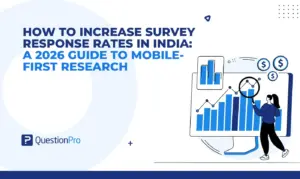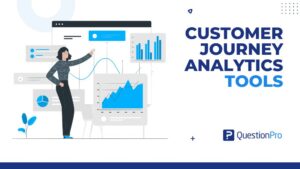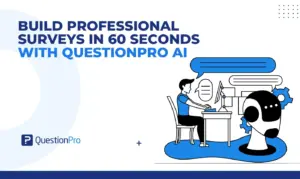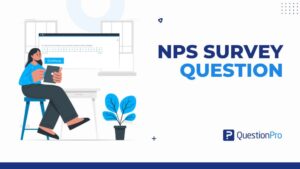
Records and document management are necessary for a business’s daily operations. It is a big part of keeping your business organized and easy to run. But businesses often overlook records management.
Managing records can help your business organize its most important documents, keep them safe, track and monitor them, audit and review them, and dispose of them safely when they are no longer needed.
In this blog, we will discuss what managing a record is its process, and best practices as well. Let’s get started.
What is Records Management?
Records management is the process of keeping track of project records and storing them correctly. It’s a system that organizes, plans, and keeps track of project records so people can access them and use them in the future. Records are lists of details that are important to the project and must be kept track of to manage the project.
When you think about record management, you need to decide what kind of information should be kept and how it should be kept. You’ll need to know how to handle and gather the records and how long they should be kept and stored. Disposal or protection records also have to do with outside events.
Process of Records Management
The record management process is the lifecycle of a record, from its creation to destruction or storage in an archive. Here, we explore the steps of the record management process:
- Record identification and categorization
Identifying and classifying records requires identifying the important documents and information that must be managed and categorized based on their type, content, and importance.
- Keeping and organizing records
This step entails locating a suitable location for storing the records and organizing them to be easily accessible and retrievable. It could include using physical filing systems, digital databases, or a combination of the two.
- Records preservation and protection
Records preservation and protection entails ensuring that the records are kept safe and secure and that they will be usable for as long as they are required. It could involve using protective storage materials, performing regular backups, and taking other precautions to avoid damage or loss.
- Obtaining and utilizing records
This step of records management entails granting access to the records to those who require it and making sure they are accessible and usable when required. Using records may involve search tools, indexes, and other tools to assist people in finding the information they require.
- Disposal of documents
This step ensures that outdated records are disposed of in accordance with any applicable laws and regulations. It could include shredding paper records, deleting electronic records, or other disposal methods.
Best practices of records management
Some records are critical to every business. To work effectively in the future, they should store them. The following are the best practices for managing records:
- Define your business goals
Each organization should decide what they need to do with its records. It means looking at the storage systems that are already in place and figuring out how they are used. It helps figure out what will be needed in the future.
Managing records should have clear steps for making, destroying, and getting rid of records. The process lets businesses make the correct legal records. It also helps companies to keep records based on rules for keeping them.
- Identifying and Documenting your Records Systemically
A crucial step in the records management process is finding and organizing records. Most of the time, the archives determine which records need to be kept. But in general, any record that can be used to prove something should always be kept. The first complicated step in managing records is choosing which ones to put in an archive.
- Setting a schedule for keeping your records
A schedule for keeping records will help you avoid the costs and risks of losing them. It decides how particular long records should be kept. Here is the schedule for different kinds of records:
- Personnel
Managing employee records once a year is enough.
- Financial
Depending on the type of financial record, the schedule can be set for different amounts of time. For instance, tax and accounting documents usually need more time than personal documents to meet IRS rules.
- Legal
How long legal documents need to be kept depends on the document type and the type of business.
- Reviewing and updating policies for managing records
Making a policy for managing records is not enough. Companies should look over and update their policies on how to handle records every so often. It ensures that the records can be kept accurate, easy to find, and private. All records should be stored in an area under the established records maintenance policy.
- Creating a Records Management Team
A company should develop a dedicated records management team to succeed in this area. The team should be in charge of keeping track of and storing all records. Also, they should ensure that the records are kept safe for as long as needed. The team should also be in charge of getting rid of old records to free up space.
- Making a Simple Workflow for the Team
Organizations should concentrate on creating a records management workflow to maintain records properly. Include the following factors in the efficient workflow:
- Getting and storing the data
- Keeping data in a key location in the company
- Controlling record access.
Record management will run smoothly with the organized procedure.
- Selecting a safe location
A crucial part of record management is determining where to store an organization’s files. Find a good location for record management by considering the following factors:
- Any place with multiple layers of security, like the grounds of an embassy or a bank vault.
- A company like a cloud computing service that takes care of your digital files.
The right location prevents unwanted access to company records. Companies that store sensitive data must choose an appropriate place.
- Tracking and Monitoring Records
Records are constantly being moved in and out of storage facilities. Records are also being transferred between departments and employees. A monitoring system should ensure that no files are lost during transmission.
Recording daily organizational operations are important for developing future decisions and processes. Access to the records is necessary for the company to determine whether it is on the right track. Tracking and monitoring records will aid organizations in their future success.
Conclusion
By using effective records management systems, businesses and people can ensure that important information is easy to find and get to when needed. Also, good record management can help keep important information from being lost or damaged and help organizations follow the laws and rules that apply.
Record management is a key part of good business and personal organization. It can help to improve efficiency and reduce risk. So, without delay, create one for your business to stand out. Contact QuestionPro if you need any help.
QuestionPro is a survey software and data management platform with excellent features to utilize. With InsightHub, you can better manage and use your data. We also have data-management tools, such as our InsightsHub research library.
In addition, QuestionPro experts are always available to assist you in managing your data. Request a demo to learn more.







